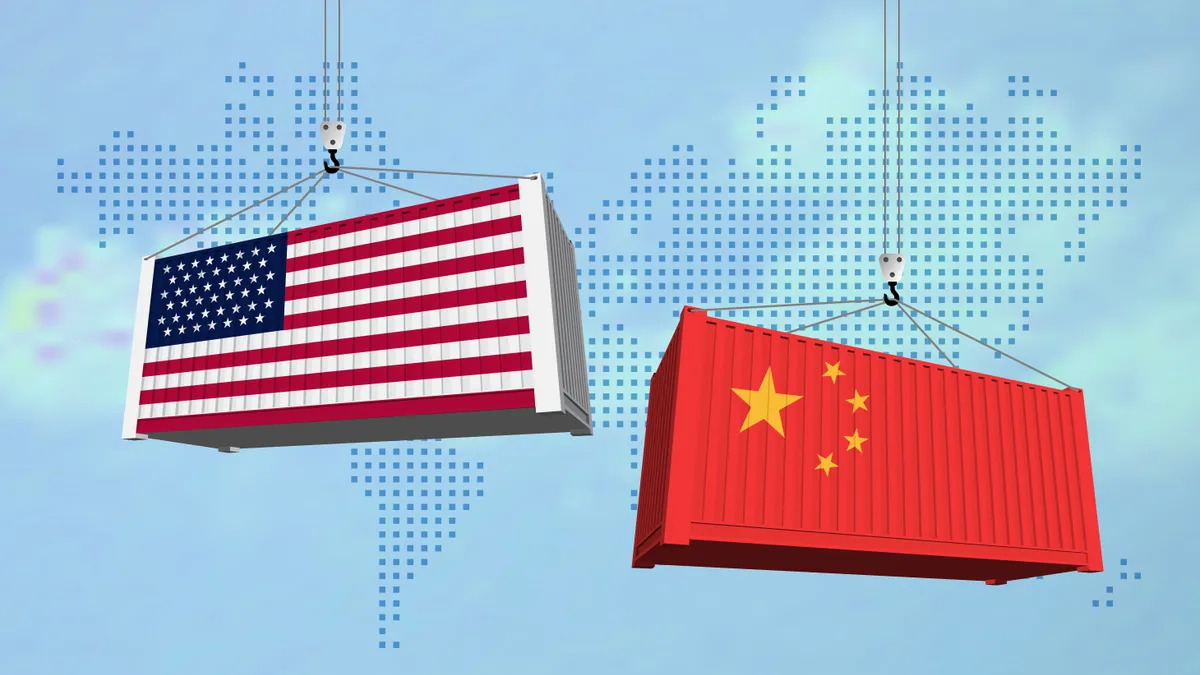Dive Brief:
- In-house legal executives view the risk of trade tariffs and import quotas as higher in Mexico and the U.S. than with other trading nations, according to a survey that focused on geopolitical risks and ways to address them. The risk report was compiled by the Association of Corporate Counsel and based on survey results from 200 member organizations in August.
- U.S. adversaries China and Russia were viewed as posing the greatest overall perceived risk to companies, followed by Mexico and the U.S., according to ACC members. Ukraine was considered slightly less risky than Israel. Eight countries, including Taiwan, Mexico and the U.S., were listed as sources of concern by more than 20 respondents.
- As a general counsel or chief legal officer, managing geopolitical risk “isn’t about predicting the future with certainty,” according to the association report. “Instead, it is about building the capabilities, flexibility, and resilience to navigate whatever challenges may arise.”
Dive Insight:
Geopolitical instability has become “a defining challenge for businesses operating on the global stage,” according to the report, released Oct. 31.
The role of trade tariffs and import restrictions has become a primary economic theme of the 2024 U.S. presidential election, with former President Donald Trump arguing that a broad array of tariffs on imported goods would benefit the U.S. economy.
Trump imposed tariffs in 2018 during his first term, across a range of products, drawing retaliatory tariffs from U.S. trading partners such as India and Canada.
A military or diplomatic crisis involving Israel ranked as legal executives’ top concern on a scale of 1-7 across a half dozen “high-risk countries,” with 7 “very concerned,” scoring a 5.8.
In terms of company activities, concerns about protecting intellectual property and sensitive data were cited most often for China and India. Protecting employees was a bigger concern for India and Mexico.
To respond to escalated risks, almost half (49%) of the companies said they’ve implemented new due diligence processes and initiated targeted education and training programs. Forty-three percent said they had initiated scenario planning as part of their response.
“It is especially interesting to learn how many companies have initiated new processes for managing geopolitical risks,” said Meg Rithmire, a professor at Harvard Business School, who collaborated on the report with the ACC and the U.S. Chamber of Commerce Foundation. “We are learning that geopolitics is reshaping transnational commerce, for sure, but also company governance.











